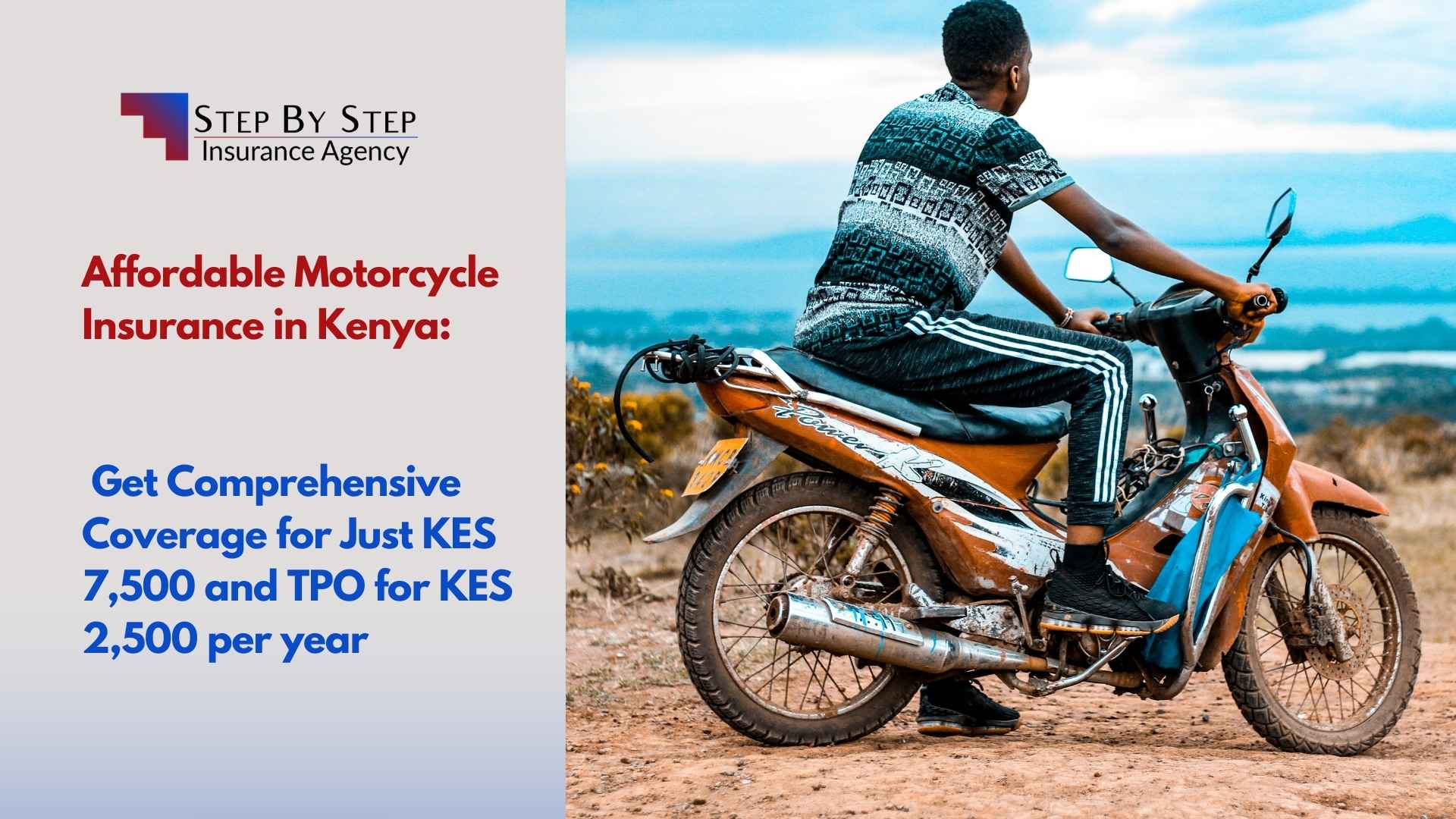Motor Insurance Role in Car Importation in Kenya
Motor insurance is integral to Kenya’s car importation process, offering crucial protection from the moment a vehicle is purchased abroad through its transport and final registration within the country.
Importing a vehicle involves various risks, from damage during shipment to potential accidents and theft while the car is in transit or awaiting customs clearance.
Motor insurance covers these risks, safeguarding the buyer’s investment and ensuring that importers meet Kenya’s stringent regulatory and legal requirements.
Moreover, Kenya’s insurance laws mandate that any vehicle on public roads must be insured, making motor insurance not just a choice but a necessity for legal compliance.
Importers often rely on temporary insurance policies to cover the vehicle during its transit and clearance period until comprehensive policies can be established locally.
This process can involve collaboration between foreign insurers and local providers, ensuring seamless coverage as the vehicle is transported internationally.
Another critical role of motor insurance in car importation is financial protection. Vehicles are significant investments, and insurance mitigates potential losses that could arise from mishaps during transport, such as natural disasters or logistical accidents.
Additionally, insurers offer specialized coverage types like “marine cargo insurance” for overseas shipments, which includes protections for various transit risks, ensuring that cars reach Kenya safely.
In essence, motor insurance is indispensable to the importation process, offering peace of mind and essential financial and regulatory support for importers navigating Kenya’s importation landscape.
By providing a safety net, motor insurance not only protects assets but also helps importers comply with Kenya’s strict road and insurance laws, contributing to a safer, more efficient car importation experience.
Here’s how motor insurance is involved in car importation:
Compliance with Legal Requirements
In Kenya, every motor vehicle is required to have at least Third Party Insurance to be roadworthy. Imported vehicles must be insured to comply with this regulation.
This requirement typically involves obtaining a minimum level of coverage (usually Third Party Only) before the vehicle is cleared at the port, ensuring it can be legally transported from the port to its destination.
Covering Transit Risks
For vehicles imported by sea, the journey from overseas to Kenya can expose cars to various risks, such as damage from handling, weather, or even theft. Many importers opt for marine cargo insurance, which covers the car from the port of origin to the port of destination.
Once in Kenya, motor insurance takes over, providing coverage for the vehicle during local transit and eventual registration and licensing processes.
- Protecting Financial Investment
Imported cars are typically costly investments, especially when factoring in import taxes and fees. Motor insurance helps protect this investment by offering coverage against potential damage or loss during transport.
For example, comprehensive insurance covers damages from theft, fire, and accidents that may occur once the car reaches Kenyan soil, safeguarding the financial commitment of the importer or new owner.
- Facilitating Ownership Transfer
Insurance is often required during the ownership transfer process of an imported vehicle. For instance, if the vehicle is sold immediately after importation, the buyer must ensure insurance is in place as part of the ownership transfer process.
Proper motor insurance helps streamline the vehicle’s transition from port clearance to the new owner’s use.
- Third Party Coverage for Road Transit
Once cleared and licensed, vehicles require at least Third Party Only insurance to be driven on Kenyan roads. This provides coverage against liability for injuries or damages caused to third parties in case of an accident, helping the importer avoid potential legal liabilities during the transportation or delivery of the car.
Challenges Faced in Motor Insurance Role in Car Importation in Kenya
Motor insurance plays a critical role in the car importation process in Kenya, but it also faces several challenges that impact both importers and insurers.
These challenges arise from the regulatory landscape, the complexities of risk assessment, and logistical issues.
Here are some key challenges in motor insurance’s role in car importation in Kenya:
Regulatory Compliance and Policy Gaps
Kenya’s importation and insurance regulations require at least Third Party Insurance for imported cars, but this mandate can sometimes create hurdles for importers. Ensuring that vehicles are legally insured before they even reach the road often requires coordination between importers, insurers, and regulators.
Additionally, there can be policy gaps for vehicles in transit, particularly if incidents occur before coverage begins locally, making it difficult to secure comprehensive protection for the full importation journey.
Complexities in Risk Assessment
Assessing risk for imported vehicles can be challenging due to varying conditions of imported cars, the unpredictability of the importation journey, and potential discrepancies in documentation.
Older or previously owned imported vehicles can have unknown histories that make accurate risk assessment difficult for insurers.
This often results in higher premiums, which may discourage importers or require them to take additional insurance to cover unknown factors.
Fraud and Claim Management Issues
The motor insurance sector in Kenya has seen instances of fraudulent claims, and this problem extends to the importation process. With some importers filing exaggerated or fraudulent claims, insurers face increased risk, leading to stricter claim assessments and sometimes lengthier processes.
The potential for fraud requires insurers to employ rigorous checks, which can delay claim payouts and lead to disputes with clients.
Costly Marine and Transit Coverage
Importing vehicles, particularly by sea, requires marine insurance to cover the vehicle from its origin to Kenya.
However, marine insurance can be costly, and not all importers are willing to take on these additional costs. Without proper transit insurance, vehicles are left exposed to risks during the journey, which complicates the role of motor insurance once the vehicle arrives in Kenya.
Some importers choose minimal insurance, leaving gaps in coverage that can create financial and logistical difficulties.
Logistical and Operational Delays
Importers often face delays at the port due to customs clearance, inspection requirements, and logistical bottlenecks, impacting the activation of motor insurance policies. Delays can lead to lapses in coverage or force insurers to extend coverage timelines, which may incur additional costs.
These logistical challenges are compounded by inconsistent port processes and high traffic, causing delays that complicate the timely start of insurance coverage.
Navigating these challenges requires collaboration between importers, insurers, and regulators to create policies that better support the unique demands of the car importation process in Kenya.
A strong partnership with a knowledgeable insurer can help importers address these challenges and secure the appropriate coverage at each stage of the importation journey.
Solutions to Challenges Faced in Motor Insurance Role in Car Importation in Kenya
Motor insurance in Kenya plays an essential role in the importation process, but it faces several key challenges, from regulatory issues to logistical obstacles.
Here are five potential solutions to help overcome these challenges and streamline motor insurance for car importers:
Enhanced Regulatory Coordination and Customization of Policies
Improved coordination between insurance providers, customs officials, and transport authorities can help streamline insurance coverage during the import process.
Establishing clear guidelines and protocols for car insurance policies that cover the entire importation journey, including periods in transit, can reduce coverage gaps.
Customising policies to fit specific importation stages (e.g., from port arrival to final delivery) can also help tailor insurance to the unique needs of importers.
Development of a Centralised Vehicle History Database
A database that centralises vehicle histories, accessible to insurers and customs agents, could address some of the challenges in risk assessment.
By providing more transparent vehicle histories, this system would enable insurers to make more accurate premium calculations and reduce the likelihood of fraudulent claims. Such a database would require collaboration across borders, especially with countries from which vehicles are imported, but it would ultimately benefit both insurers and importers.
Implementation of Digital Verification and Fraud Detection Tools
Incorporating digital tools for fraud detection and verification can help insurance companies identify fraudulent claims earlier, making the claims process more efficient.
Leveraging artificial intelligence (AI) for document verification and fraud pattern recognition would allow insurers to streamline claim processing and protect against losses from fraudulent activities.
By reducing the need for lengthy manual assessments, these tools can help insurers support genuine clients while minimising processing times.
Promotion of Marine and Comprehensive Transit Coverage Options
Encouraging importers to invest in marine and transit insurance packages that cover the entire shipping route can ensure protection from point of origin to final destination.
Insurers can promote bundled packages that combine marine and motor insurance, potentially offering reduced premiums for comprehensive coverage.
Educating importers on the benefits of full transit coverage can prevent coverage lapses and provide continuous protection, ultimately reducing financial risks.
Streamlined Claim Processes and Dedicated Import Insurance Support
Offering streamlined claim processes for imported vehicles potentially with specialised departments focused on import-related claims can help insurers handle cases more efficiently.
Having dedicated representatives who understand the unique aspects of car importation in Kenya can improve customer service, speed up claims, and reduce misunderstandings with clients.
For added convenience, insurers could implement an online claim-tracking portal that allows importers to monitor claim status in real-time.
Conclusion
In the complex landscape of car importation in Kenya, motor insurance plays an indispensable role, safeguarding both the vehicle’s journey and the importer’s peace of mind.
Addressing the unique challenges within this niche requires a multifaceted approach enhancing regulatory coordination, embracing digital solutions, and refining coverage options to fit the evolving importation process.
These strategies not only reduce potential financial risks but also contribute to a streamlined, efficient experience for importers.
With the right motor insurance, importers can navigate unforeseen events with confidence, knowing they’re covered against the risks inherent in vehicle transit and importation.
By prioritising comprehensive and tailored coverage options, Kenyan insurers can meet the needs of importers effectively, helping them protect their investments at every step.
Secure Your Imports with Step By Step Insurance Agency
Explore how Step By Step can support you with specialised motor insurance solutions for every phase of your vehicle’s journey. Reach out today and drive peace of mind on your import path!
#MotorInsurance #CarImportationKenya #SecureYourImport #StepByStepInsurance





